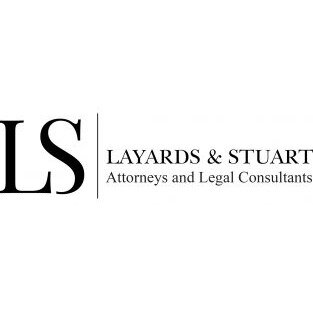Best Debt Capital Markets Lawyers in Sri Lanka
Share your needs with us, get contacted by law firms.
Free. Takes 2 min.
Or refine your search by selecting a city:
List of the best lawyers in Sri Lanka
About Debt Capital Markets Law in Sri Lanka
Debt Capital Markets (DCM) in Sri Lanka refer to the segment of the financial markets where organizations, including corporations, financial institutions, and the government, raise funds by issuing debt securities. These instruments include bonds, debentures, and other forms of debt that investors can buy and sell. The legal framework governing DCM ensures transparency, protects investor interests, and promotes financial stability within the economy. With the growth of Sri Lanka's economy, the importance of robust debt capital markets and related regulations has been increasing, offering a variety of investment and financing opportunities both for issuers and investors.
Why You May Need a Lawyer
Engaging in transactions within Debt Capital Markets often involves complex legal and regulatory requirements. You may need a lawyer in several common situations, such as:
- If you are a corporation or government entity issuing bonds or debentures
- When offering or structuring new debt products for the market
- To review and draft legal documentation relating to securities offerings
- To navigate compliance with regulatory requirements of the Securities and Exchange Commission of Sri Lanka (SEC), Colombo Stock Exchange (CSE), or the Central Bank of Sri Lanka (CBSL)
- When facing disputes or defaults regarding debt obligations and payments
- For advice on listing and disclosure requirements
- To analyze the impact of tax laws and regulations on debt instruments
- If you are an investor seeking to understand your rights and remedies
A legal specialist helps ensure transactions are compliant, mitigates risks, and protects your interests.
Local Laws Overview
Several key regulations and authorities shape Sri Lanka's Debt Capital Markets:
- The Securities and Exchange Commission of Sri Lanka Act governs the issuance and trading of listed securities, ensuring transparency and investor protection
- The Companies Act provides the framework for corporations seeking to issue debt securities like debentures
- The Banking Act and Financial Institutions Act regulate financial intermediaries such as banks and finance companies participating in DCM
- The Central Bank of Sri Lanka (CBSL) issues guidelines on government securities, sovereign bonds, and other debt product regulation
- The Colombo Stock Exchange (CSE) sets out listing rules for debt securities and monitors compliance
- Taxation laws influence the cost-effectiveness and structuring of debt instruments
Issuers and investors must comply with strict disclosure, registration, and reporting obligations. Legal advisors play a crucial role navigating these requirements and addressing cross-border considerations where foreign investment is involved.
Frequently Asked Questions
What are the most common types of debt securities issued in Sri Lanka?
The most common debt securities include government treasury bonds, corporate debentures, and commercial papers, all of which can be publicly or privately placed.
Who regulates the Debt Capital Markets in Sri Lanka?
The Securities and Exchange Commission of Sri Lanka (SEC), the Central Bank of Sri Lanka (CBSL), and the Colombo Stock Exchange (CSE) are the key regulatory bodies overseeing DCM activities.
Can foreign investors participate in Sri Lanka's Debt Capital Markets?
Yes, foreign investors can participate in debt securities subject to certain regulatory restrictions imposed by the Central Bank and the SEC.
What are the basic eligibility requirements for a company to issue listed debt securities?
Companies must comply with listing rules set by the CSE, maintain a minimum net worth, publish a prospectus, and fulfill disclosure and reporting obligations.
Are there any tax implications for debt securities in Sri Lanka?
Interest and capital gains on debt securities may be subject to taxes such as withholding tax or income tax. The tax treatment can depend on the issuer, type of security, and investor status.
What are the disclosure requirements when issuing debt securities?
Issuers must provide comprehensive information about financials, risks, use of proceeds, and terms of the debt instruments in an approved prospectus or offer document.
Is it possible to privately place debt securities without listing them?
Yes, private placements are permitted, but they must still comply with applicable Securities and Exchange Commission guidelines and notification requirements.
What happens if an issuer defaults on a debt security?
Bondholders may have recourse through legal proceedings, and trustees can enforce contractual remedies. The process usually involves negotiation, restructuring, or court action.
How does one go about listing a debt security on the Colombo Stock Exchange?
Listing requires the submission of a detailed application, compliance with CSE rules, regulatory approvals, and an ongoing commitment to disclosure and reporting.
What legal risks should investors be aware of in the Debt Capital Markets?
The major risks include issuer default, regulatory non-compliance, lack of disclosure, and changes in interest rates or tax laws. Seeking legal advice helps in thoroughly understanding these risks.
Additional Resources
For more detailed guidance or official information, you can consult the following:
- Securities and Exchange Commission of Sri Lanka (SEC) - Regulates public offerings and investor protection
- Central Bank of Sri Lanka (CBSL) - Oversees monetary policy and government securities
- Colombo Stock Exchange (CSE) - Responsible for listing and trading rules for debt instruments
- Institute of Chartered Accountants of Sri Lanka - Offers insights on financial reporting standards related to DCM
- Ministry of Finance - Publishes government debt programs and policy documents
Next Steps
If you intend to participate in or are affected by matters relating to Sri Lanka's Debt Capital Markets, consider the following actions:
- Identify your primary needs, whether as an issuer, investor, or intermediary
- Gather any relevant financial or legal documentation
- Research and select a qualified Sri Lankan lawyer or law firm experienced in capital markets
- Schedule an initial consultation to discuss your objectives and concerns
- Confirm the lawyer's familiarity with applicable local laws, regulatory frameworks, and current market practices
- Take proactive steps to ensure ongoing compliance, whether you are issuing, trading, or investing in debt securities
Early legal advice can help you avoid costly mistakes, address regulatory challenges, and smoothly navigate Sri Lanka's Debt Capital Markets.
Lawzana helps you find the best lawyers and law firms in Sri Lanka through a curated and pre-screened list of qualified legal professionals. Our platform offers rankings and detailed profiles of attorneys and law firms, allowing you to compare based on practice areas, including Debt Capital Markets, experience, and client feedback.
Each profile includes a description of the firm's areas of practice, client reviews, team members and partners, year of establishment, spoken languages, office locations, contact information, social media presence, and any published articles or resources. Most firms on our platform speak English and are experienced in both local and international legal matters.
Get a quote from top-rated law firms in Sri Lanka — quickly, securely, and without unnecessary hassle.
Disclaimer:
The information provided on this page is for general informational purposes only and does not constitute legal advice. While we strive to ensure the accuracy and relevance of the content, legal information may change over time, and interpretations of the law can vary. You should always consult with a qualified legal professional for advice specific to your situation.
We disclaim all liability for actions taken or not taken based on the content of this page. If you believe any information is incorrect or outdated, please contact us, and we will review and update it where appropriate.
Browse debt capital markets law firms by city in Sri Lanka
Refine your search by selecting a city.

















